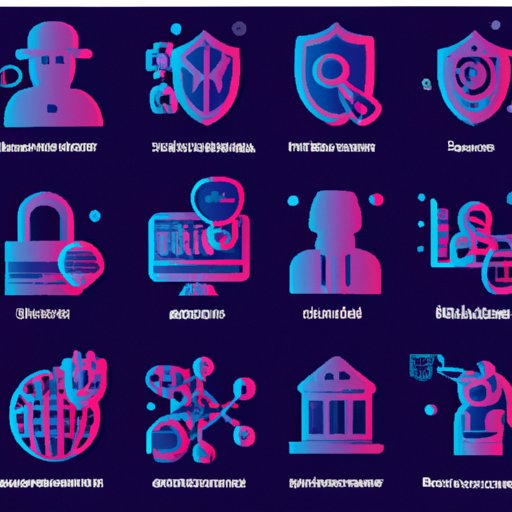Introduction
Cybersecurity is an ever-growing field with many opportunities for skilled professionals. With the rise of cyber threats, businesses and organizations need qualified individuals to help protect their networks and data. This article will provide an overview of the basics of cybersecurity and offer tips on how to get a job in this lucrative field.

Understand the Basics of Cybersecurity
Before you can start looking for a job in cybersecurity, it is important to understand what cybersecurity is and the different types of roles available. Cybersecurity is the practice of protecting computer systems, networks, and data from unauthorized access or attack. This includes preventing malicious software from entering a system, detecting intrusions, and responding to security incidents.
There are many types of jobs in cybersecurity, including network security analysts, security engineers, intrusion detection specialists, ethical hackers, and more. Each role requires a different set of skills, but all require a strong understanding of technology and security protocols. Some roles may require specialized training or certifications.
Essential skills for cybersecurity professionals include problem solving, analytical thinking, attention to detail, communication, and technical knowledge. Understanding basic programming languages and security protocols is also important. It is also beneficial to have knowledge of operating systems and networking concepts.
Increase Your Skillset With Certifications
Having a certification in cybersecurity can give you an edge when looking for a job. Certifications demonstrate your knowledge and commitment to the field. Popular certifications include CompTIA Security+, CISSP, CEH, and CCNA Security. These certifications are offered by various organizations and can be completed online or in person.
Certifications can also help you stand out in the job market. Employers often look for candidates with certifications as they demonstrate a commitment to the profession and prove that you have the necessary skills. Having a certification also shows potential employers that you are knowledgeable and capable of performing the duties required for the job.
Network and Attend Events
Networking is an important part of finding a job in cybersecurity. Connecting with professionals in the industry can help you learn more about the field and expand your network. Professional organizations like ISACA, ISC2, and (ISC)² offer networking events and conferences where you can meet other professionals and learn more about the industry.
Attending conferences and seminars is another great way to stay informed about the latest trends in cybersecurity. These events often feature experts who can provide insight into the industry and help you develop your skills. You can also make valuable connections at these events, which can help you find job opportunities.
Stay Up-To-Date on Trends
Staying up-to-date on the latest trends in cybersecurity is essential for success. Knowing what new technologies and techniques are being used can help you stay ahead of the competition. Important resources for staying current include blogs, podcasts, newsletters, and trade publications.
Keeping track of changes in the industry is also important. Following industry news and developments can help you identify new job opportunities and better prepare for interviews. Joining online communities and forums can also help you stay connected with other professionals in the field.
Take on Freelance Projects
Taking on freelance projects is a great way to gain experience and build your portfolio. Freelance work can help you build your skillset and show potential employers that you are capable of completing projects independently. There are many websites and platforms that offer freelance opportunities in the cybersecurity field.
Freelance work can also help you make connections. Working with clients can give you a chance to network and build relationships. It is also a great way to demonstrate your skills and abilities to potential employers.
Build a Portfolio
Having a portfolio is essential for any job seeker in the cybersecurity field. A portfolio is a collection of your work that demonstrates your skills and capabilities. It should include examples of projects you’ve completed, certifications you’ve earned, and any other relevant information.
Your portfolio should showcase your skills and accomplishments. Examples of what to include are sample code, reports, presentations, and white papers. Your portfolio should also include references from past employers or clients. This will help demonstrate your experience and professionalism.
Conclusion
Getting a job in cybersecurity requires a combination of knowledge, skills, and experience. Understanding the basics of cybersecurity and having the right certifications can help you stand out in the job market. Networking and attending events can help you find job opportunities and build relationships. Additionally, taking on freelance projects and building a portfolio are great ways to gain experience and demonstrate your skills.
With the right approach, you can find a job in cybersecurity. Stay up-to-date on trends, take advantage of networking opportunities, and build a portfolio that showcases your skills and accomplishments. With dedication and hard work, you can find success in this growing and rewarding field.
(Note: Is this article not meeting your expectations? Do you have knowledge or insights to share? Unlock new opportunities and expand your reach by joining our authors team. Click Registration to join us and share your expertise with our readers.)
